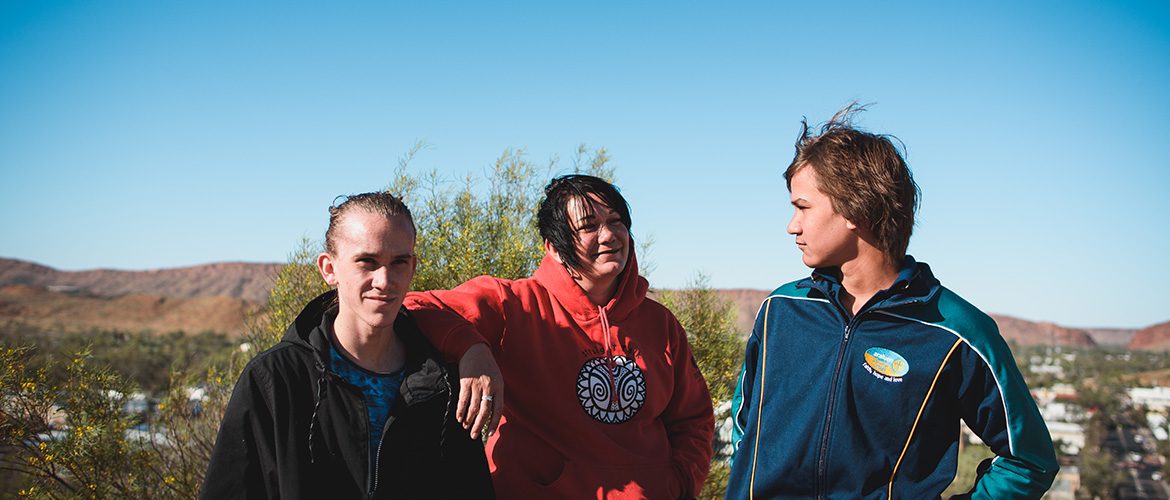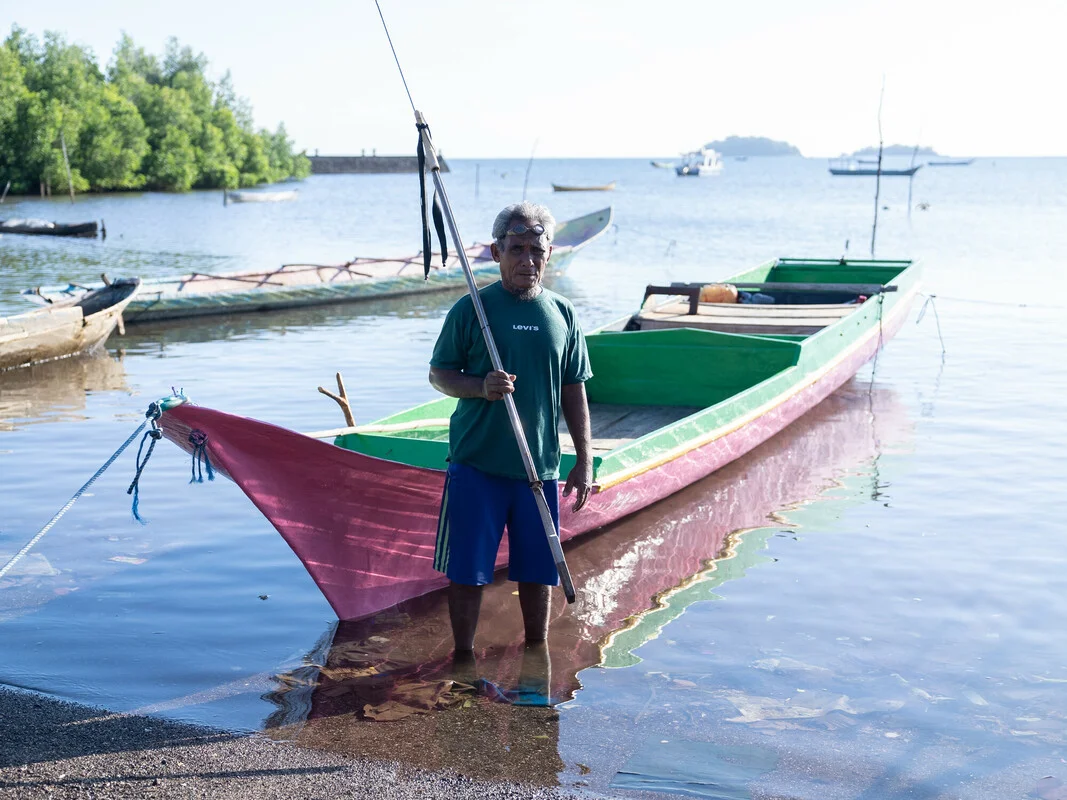It’s a cold and windy winter morning in Alice Springs but you wouldn’t know it looking at the blue, cloudless sky. The sun is blinding, even at 9am, and the rocky ridge surrounding the town — said to have been created by giant caterpillars in the Arrernte people’s Dreamtime story — glows bright orange in the distance.
We meet Straight Talker Donna Lemon and her sons, Johvan and Thyce, atop Anzac Hill, a lookout that offers a panoramic view of Alice Springs and the beautiful surrounding ranges. Thyce is dressed in his school’s sports uniform, about to fly to Melbourne for an interstate competition. Donna says she is never able to convince her sons to take a photo with her and had to seize the opportunity. The boys roll their eyes at their mum but it’s clear they would do anything for her — even pose for photos.
“Who knows, this might even be my new Facebook profile pic!” Donna teases them.
The beginning of change
Born and bred in Alice Springs, Donna began her leadership journey at the age of 17 by becoming the Chair of the Indigenous Youth Committee established by the Central Australian Aboriginal Congress, to address the needs of young people in Alice Springs in curbing anti-social behaviour.
Since that time, Donna has held management positions in key Aboriginal organisations in Alice Springs and participated in prestigious leadership programs.
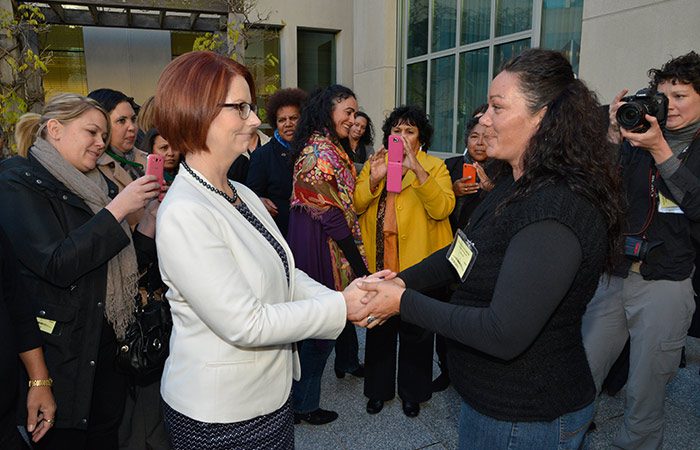
It was in one of these programs that she met Michelle Deshong who encouraged her to participate in Oxfam Australia’s Straight Talk program.
The program brings Aboriginal and Torres Strait Islander women from all over the country to Canberra to learn about the political system, connect with like-minded women, and help them become change-makers in their communities.
“Oh my god … that is what I live for!” Donna says. “I love interacting with people and believe that it is one of my biggest strengths. The fact that there were 50-plus other women from all over the country there, at the same time, made it far more interesting. Hearing about their journeys and the issues they’re facing in their own communities made for a very emotional week.”
Power in numbers
“I went through the program at a pretty rough time in my life, having two teenage sons and I was in a pretty bad place in my relationship. And I felt like I was the only one going through some stuff. It wasn’t until I got to Straight Talk that I realised there were other women out there who were experiencing the exact same thing as me — not just on a professional level but a personal level as well.”
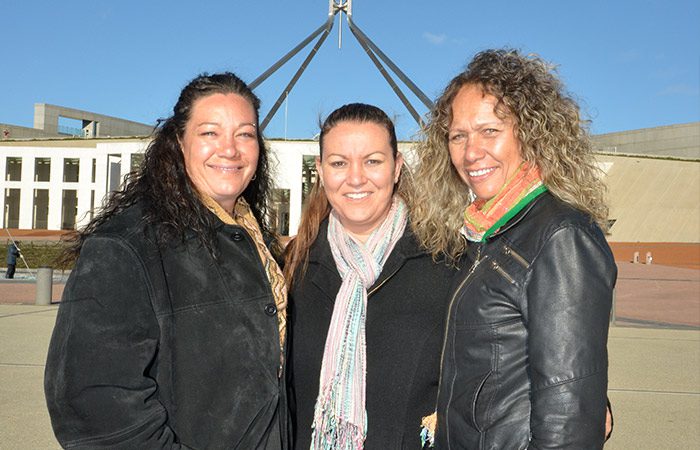
Donna says the program has given her the tools to become an influencer in her community and stand up for the rights of Aboriginal people.
“I have always been pretty confident but Straight Talk gave me more opportunity to be outspoken and talk about things openly that affected me or my community in a political sense,” she says.
Looking to the future
“The main issue that seems to stand out every time is that we need to have a say in what happens in our community — what happens to our kids, the welfare of our kids, what our kids eat, when they go to the doctors,” Donna says.
“We need to have that power back as Aboriginal people, because for so long, we relied on the way we did things without a European settlement. And I think was the biggest common denominator for all the women — we need to do things for ourselves. Stop making decisions for us and throwing us into a system that clearly doesn’t work and is making us dependent.”
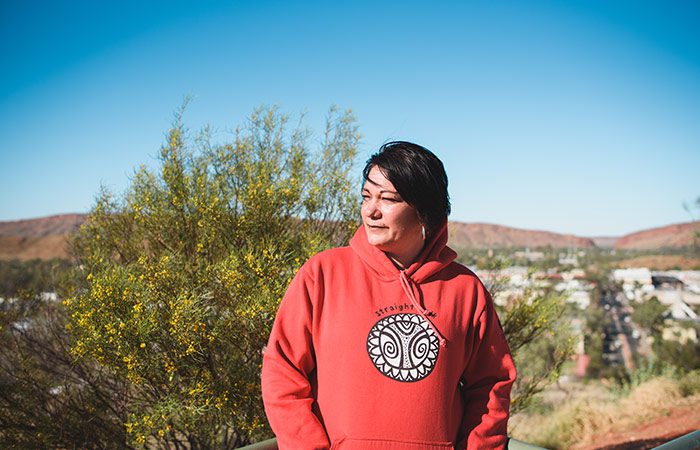
Support Straight Talk
You can help more women like Donna participate in the life-changing Straight Talk program by purchasing an Oxfam Unwrapped “Women’s Empowerment” card.
